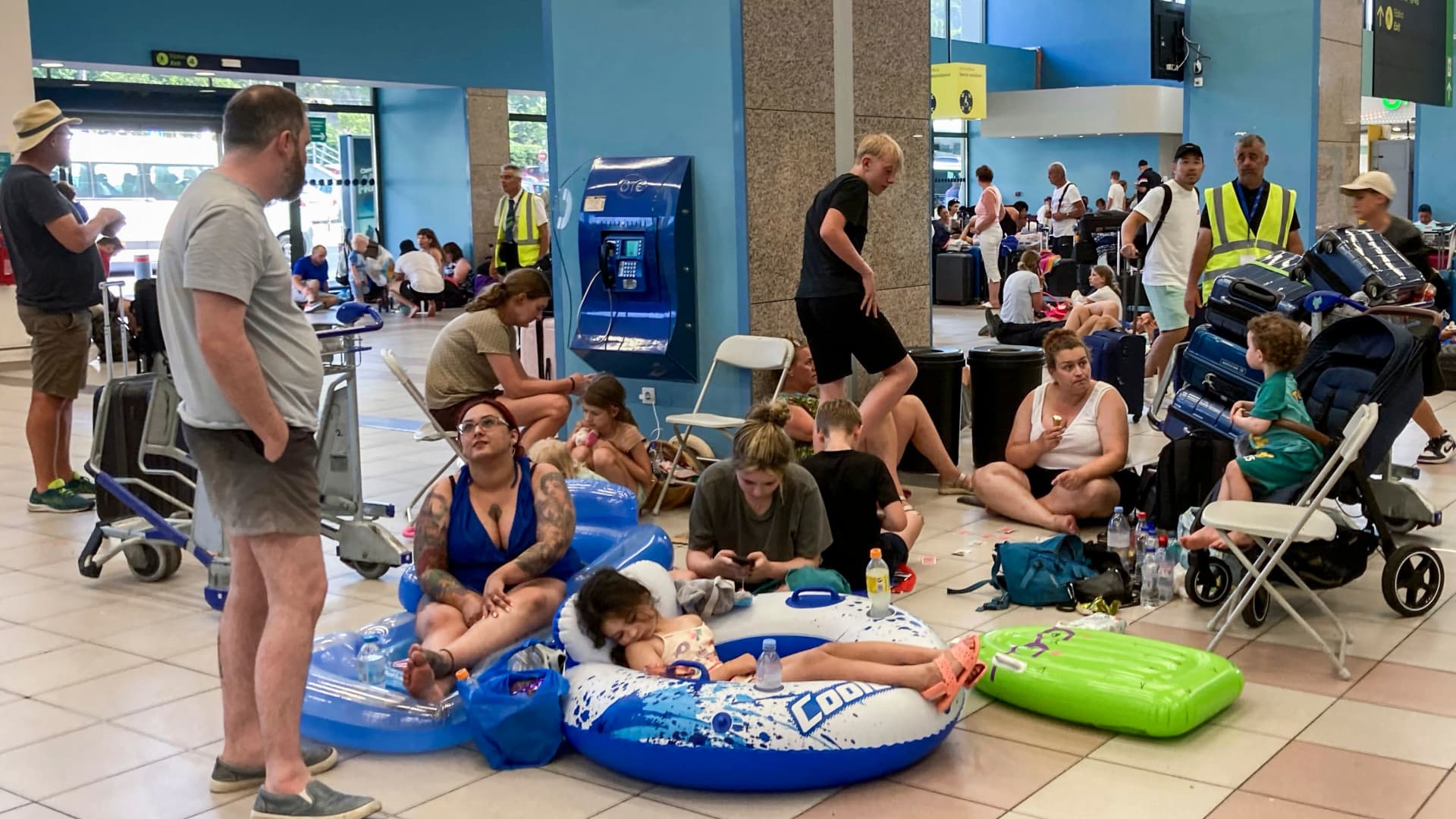Tourists Seek Travel Insurance Amidst Increasing Extreme Weather Events
Wildfires, tropical storms, and other climate-change-related disasters are causing a significant shift in the insurance industry. Insurers are struggling to make profits and absorb losses due to the rising frequency of these extreme weather events. As property insurers withdraw from high-risk areas, governments are stepping in and becoming increasingly concerned about the situation. However, amidst this chaos, the travel insurance market is experiencing a boost in demand.
Travel insurance, which covers trip cancellation, lost luggage, and delays, has seen increased interest as more travelers face disrupted travel plans. Jeff Rolander, VP of Claims at Faye Travel Insurance, who has decades of experience in the industry, notes that storms are now occurring more frequently, and it’s no longer a matter of if they will hit, but rather how severe they will be.
Statistics support this trend. The Actuaries Climate Index, which measures extreme weather events, shows a rise in warming temperatures, higher sea levels, increased heavy precipitation, and more droughts in North America in recent decades. This rise in extreme weather events has led to a surge in consumers opting for travel insurance. Squaremouth.com, a travel insurance quoting and comparison engine, reports a 410% increase in sales compared to 2020 and a 126% increase compared to 2019.
The pandemic has played a role in this increased demand, as revenge trips and higher inflation have made travel more expensive. Additionally, travelers are becoming more cautious due to the heightened risk of delays caused by extreme weather. For example, Nick Lazzari, the owner of Cross Border Coverage, which provides auto insurance for U.S. and Canadian vehicles driving to Mexico, states that people are now closely monitoring hurricanes before making travel plans.
These natural disasters result in significant losses for insurers and ultimately lead to increased prices for policyholders. In 2022, global economic losses from natural disasters reached $275 billion, with $125 billion covered by insurance. Over the past three decades, there has been an average annual increase of 5% to 7% in insured losses, according to Swiss Re.
The insurance industry as a whole is grappling with climate change and exploring how to adapt. The disruptions in travel present both challenges and opportunities for travel insurance providers and the industry in general. Insurance companies typically respond to rising risks and claims by imposing restrictions, raising prices, or leaving certain markets. In states where regulators aim to cap premiums for property insurance, companies are choosing to withdraw or not offer coverage for risks like wildfires and floods.
While homeowners experience significant price hikes in property insurance, travel insurance consumers have not yet faced a similar price shock. Travel insurance tends to be short-term, and costs such as airfare and hotel are relatively predictable. However, as the industry evolves and the number of natural disasters increases, price changes may occur.
Furthermore, the insurance market is seeing the rise of new entrants and insurtech startups that are disrupting the industry. These innovative companies are not burdened by legacy costs and can offer competitive rates. The venture capital investments in insurtech reached a record high of $16.3 billion in 2021, indicating growing interest in tech-driven insurance startups.
Established insurance companies are also adapting to travel-related issues by revising their offerings. For example, Allianz made significant changes to its travel insurance products, including higher benefit levels for trip cancellation and trip interruption coverage. Additionally, new players like Sensible Weather are carving out niches in the industry. Sensible Weather provides insurance to cover bad weather impacts on outdoor trips, such as hiking or skiing.
Overall, the travel insurance market is experiencing growth amidst the challenges posed by extreme weather events. As consumers become more aware of the risks and uncertainties associated with travel, the demand for travel insurance is expected to continue rising.
Denial of responsibility! Vigour Times is an automatic aggregator of Global media. In each content, the hyperlink to the primary source is specified. All trademarks belong to their rightful owners, and all materials to their authors. For any complaint, please reach us at – [email protected]. We will take necessary action within 24 hours.


